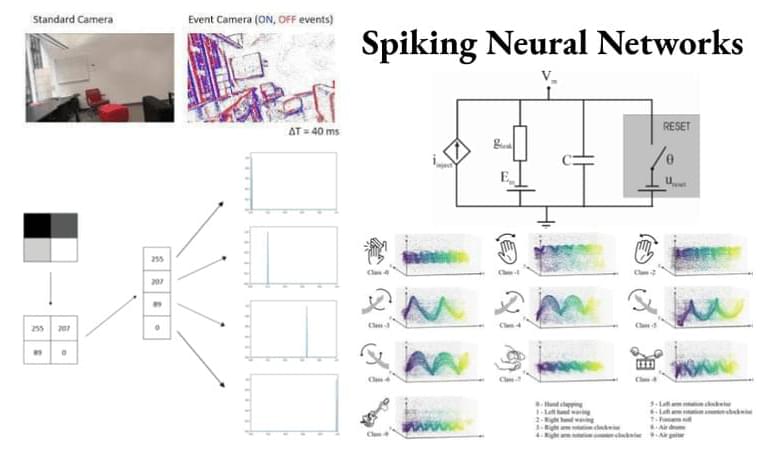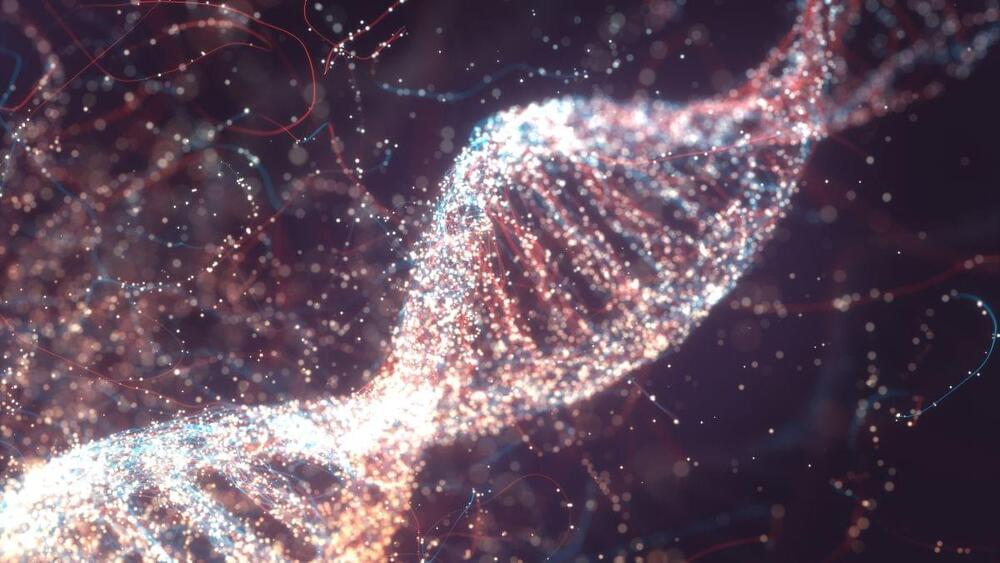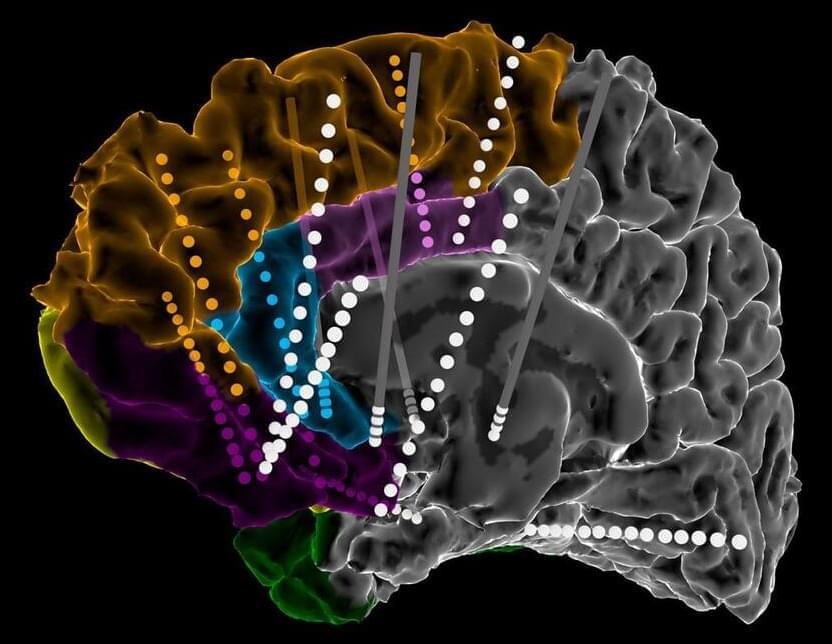Discorver how to formulate and train Spiking Neural Networks (SNNs) using the LIF model, and how to encode data so that it can be processed by SNNs.


The National Institutes of Health has launched a program to study a rare type of cells, called “senescent” cells, that play both positive and negative roles in biological processes. The NIH Common Fund’s Cellular Senescence Network (SenNet) program will leverage recent advances in studying individual cells, or single-cell analysis, to comprehensively identify and characterize the differences in senescent cells across the body, across various states of human health, and across the lifespan. The rarity and diversity of these cells previously made them difficult to identify and study; therefore, a deeper understanding will help researchers develop therapies that encourage beneficial effects of senescent cells while suppressing their tissue-damaging effects.
“The number of senescent cells in a person’s body increases with age, which may reflect both an increase in the generation of these cells and a decreased ability of the aging immune system to regulate or eliminate these cells. This age-related accumulation of senescent cells leads to production of inflammatory molecules and corruption of healthy cells,” said Richard J. Hodes, M.D., director of the National Institute on Aging, part of NIH. “This can affect a person’s ability to withstand stress or illness, recuperate from injuries, and maintain normal brain function. The aim of NIH’s strengthened focus on this field of science is to one day conquer these and other challenges.”
A cell dividing into two cells is a hallmark of human development. Over time, our bodies accumulate a small number of cells that no longer divide. These “senescent” cells can play important roles in health, either directly or through the release of molecules that affect neighboring cells. Senescent cells can play positive roles, such as aiding wound repair or preventing tumor growth in some cancers. However, they can also contribute to chronic diseases of aging such as cardiovascular disease and neurodegeneration. For this reason, therapeutics called “senolytics” are being developed to target senescent cells and remove them from the body.
All these bequests of your bigger brain cortex mean you can gather four generations around a meal to exchange banter and gossip, turn information into knowledge and even practice the art of what-not-to-say-when.
You may even want to be thankful for another achievement of our neuron-crammed human cortices: All the technology that allows people spread over the globe to come together in person, on screens, or through words whispered directly into your ears long distance.
I have a small YouTube channel which I create videos on clean energy and the environment. I have under 600 subs and many videos have not even hit 100 views but I am being increasingly targeted by fossil fuel activists and supporters, with personal attacks and misinformation.
I do respond to misinformation, and remove the worst comments but if anyone would like to help support me, nipping over to my channel, watching some videos and subscribing to the channel would be most appreciated.
We can show them that they are the minority, not us, and the wider the information spreads the quicker the change will be and the better life will be for everyone.
Thanks in advance and have an awesome day.
It is very likely that treatments to address the issues that cause aging & its related conditions & diseases will be within our reach in 15 to 20 years.
It is highly likely that a general realisation that these treatments are not only scientifically possible but within our reach will start to become increasingly apparent to the wider population in as little as maybe 5 years.
On this channel I will seek to hasten this realisation, & provide answers to the most common questions & concerns. I will also seek to distil the current scientific knowledge base into an easy to use action plan for those wishing to take measures to make sure they see this in good health.
To raise awareness of how close longevity treatments are.

Neuroscience biweekly vol. 46, 10th November — 24th November.
“It’s amazing that you can still find areas of the brain that are important for basic survival behaviors that we had never before implicated,” Betley says. “And these brain regions are important in robust ways.” The work, shared in the journal Nature, suggests that neurons in the cerebellum’s anterior deep cerebellar nuclei (aDCN) are involved in helping animals regulate their meal size. Since its start, Betley’s lab has unraveled a variety of neural circuits related to how the brain regulates food intake. That work as well as other research has implicated areas of the hindbrain and hypothalmus in this control.
Well beyond Descartes and his mind-body duality, new questions have emerged that are as exciting as they are nebulous: Does quantum physics play a role in how the brain works? Or, more profoundly, is the mind, viewed as a collection of possible brain states, sustained by quantum effects? Or can it all be treated using classical physics?
There is nothing better than mixing two great mysteries to produce an even bigger one.

Natural selection, the evolutionary process that guides which traits become more common in a population, has been acting on us for the past 3,000 years, right up to the modern day, new research suggests.
And it seems to be acting in surprising ways on complex traits encoded by multiple genes, such as those tied to intelligence, mental illness and even cancer.

𝐌𝐀𝐆𝐈𝐂 𝐌𝐔𝐒𝐇𝐑𝐎𝐎𝐌 𝐒𝐓𝐔𝐃𝐘 𝐒𝐔𝐆𝐆𝐄𝐒𝐓𝐒 𝐏𝐒𝐈𝐋𝐎𝐂𝐘𝐁𝐈𝐍 𝐌𝐀𝐘 𝐑𝐄𝐕𝐄𝐑𝐒𝐄 𝐀𝐋𝐂𝐎𝐇𝐎𝐋-𝐈𝐍𝐃𝐔𝐂𝐄𝐃 𝐁𝐑𝐀𝐈𝐍 𝐃𝐀𝐌𝐀𝐆𝐄
𝘼𝙁𝙏𝙀𝙍 𝙃𝘼𝙇𝙁 𝘼 𝘾𝙀𝙉𝙏𝙐𝙍𝙔 𝙤𝙛 𝙗𝙡𝙤𝙘𝙠𝙨 𝙩𝙤 𝙧𝙚𝙨𝙚𝙖𝙧𝙘𝙝 𝙤𝙣 𝙥𝙨𝙮𝙘𝙝𝙚𝙙𝙚𝙡𝙞𝙘𝙨’ 𝙥𝙤𝙩𝙚𝙣𝙩𝙞𝙖𝙡 𝙛𝙤𝙧 𝙩𝙧𝙚𝙖… See more.
The psychedelic drug psilocybin can restore alcohol-induced damage to the brain’s glutamate receptors — that’s the finding of a new study published in ‘Science Advances.’

😳! Circa 2018
Some animals live fast and die young. That means they need to grow up fast, too. This week, researchers crowned a new record holder for quick growth: Susan Milius at Science News reports that the turquoise killifish, Nothobranchius furzeri, found in Mozambique, can reach maturity in just 14 days, the fastest of any known vertebrate animal.
That rapid maturation is an adaptation to the killifish’s habitat, according to the study published this week in the journal Current Biology. The fish spend most of their lives as tiny embryos that have been deposited in sediment in small depressions across the savannah. When rain fills the ephemeral pools, the embryos mature rapidly reaching sexual maturity and depositing their own embryos before the pool once again dries up. Not only do they make babies quickly, they bulk up fast, too—typically growing from about 5 millimeters to 54 millimeters in their lifespan.
Researchers have been aware of the turquoise killifish’s super-fast maturation for a while. In fact, the fish is used as a model animal in aging studies because of this trait. In the lab, where the fish live a relatively leisurely lifestyle, the average rate of maturation is 18 days.
